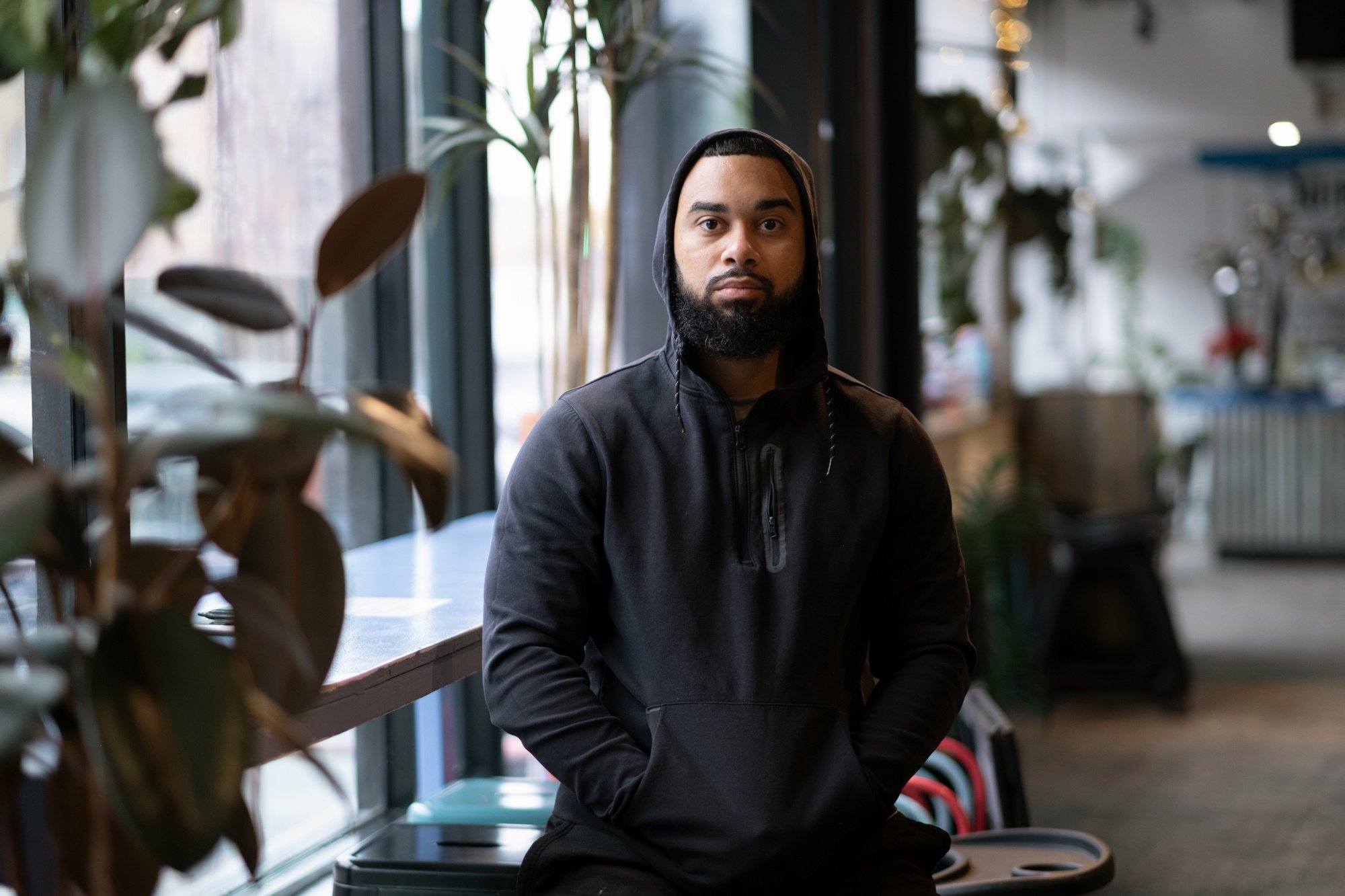The professionalism paradox: Navigating bias and authenticity with Pabel Martinez
11. 3. 2024
6 min.
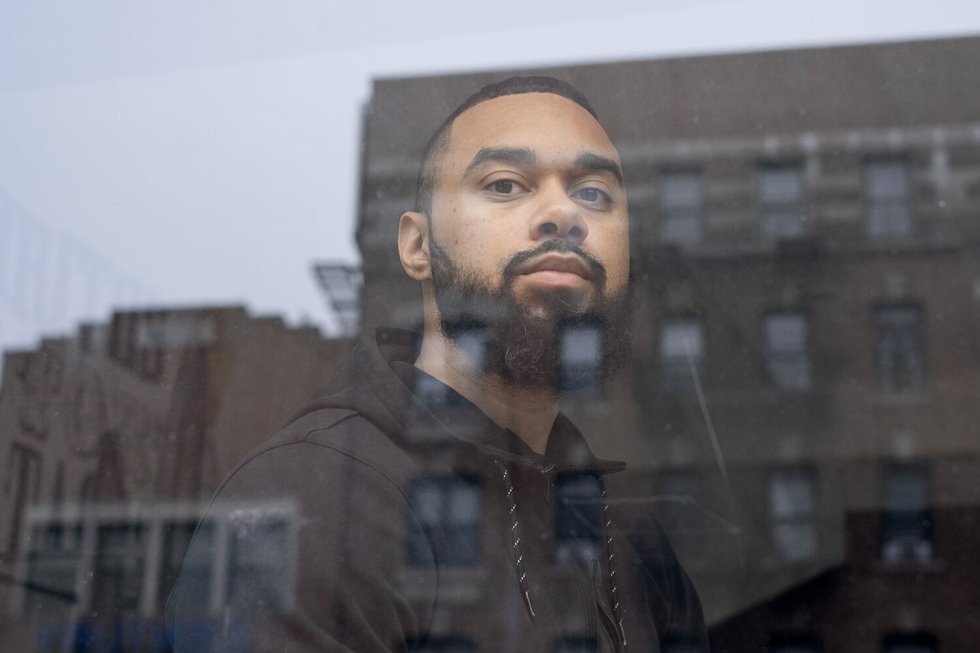

Senior Editor at Welcome to the Jungle
The concept of professionalism is often heralded as a benchmark for behavior, appearance, and communication. Yet, beneath the surface of this well-intentioned standard lies a complex web of biases that can, inadvertently or otherwise, perpetuate discrimination. This subtle undercurrent affects not just the trajectory of individual careers but also the overall culture within organizations, shaping perceptions of what is deemed 'acceptable' and 'expected.'
The narrative of professionalism, traditionally dominated by a one-size-fits-all approach, is increasingly coming under scrutiny. Questions arise: Whose standard is the benchmark? Can the traditional norms of professionalism coexist with the rich tapestry of a diverse workforce? These questions peel back layers, revealing that what is considered professional can often exclude and marginalize underrepresented groups, disguising racism, sexism, and microaggressions as maintaining workplace decorum.
In an open and honest conversation, Pabel Martinez, a self-proclaimed “delusional tech founder who thinks that he has the power to redefine professionalism,” unpacks the hidden dimensions of professionalism in the workplace. By challenging conventional norms and advocating for a redefined understanding of professional conduct, there’s potential for both individual growth and a transformative shift in corporate cultures. Such a shift can pave the way for a more inclusive, equitable, and genuinely professional environment where diversity is celebrated, and every employee is judged by their competence and skills, not by outdated stereotypes or biases.
The true meaning of professionalism
“Professionalism means the skill or competence expected of a professional. That’s it,” Martinez states, challenging the broader application of the term that often strays into the realm of personal biases and judgments. This definition sets the stage for a deeper exploration of how professionalism is misconstrued in today’s workplace.
Martinez argues that the misunderstanding of professionalism isn’t just about ignorance but is deeply rooted in media and societal stereotypes. He explains, “It’s also due to the media and representation that we’ve seen for forever … We all have this idea in mind.” This depiction has historically favored white men, thereby setting a biased standard for what is considered ‘professional.’
“It’s not that they’re unprofessional or lack executive presence. It’s that the person evaluating them is uncomfortable with how this person is deciding to live their lives.”
Discriminatory ‘professionalism’ and the impact of bias
Understanding professionalism through Martinez’s lens of skill and competence invites us to confront the darker, more insidious side of these standards. Sharing personal experiences from his journey in the tech world, Martinez highlights how professionalism is often used to disguise discrimination. “I’ve been in interview loops and I’ve heard people say … ‘I don’t know if we should hire her. She’s unprofessional. She doesn’t have executive presence,’” he recounts. This narrative exposes how subjective and abstract notions such as ‘executive presence’ can serve as a smokescreen for bias, effectively sidelining candidates who don’t fit a traditional mold, often based on diversity aspects like race, gender, or cultural background.
Martinez’s reflections shed light on a deeper, systemic issue: the impact of such biases extends beyond the hiring process, influencing how individuals are perceived and valued within their roles. “It’s not that they’re unprofessional or lack executive presence. It’s that the person evaluating them is uncomfortable with how this person is deciding to live their lives,” he explains, highlighting the personal biases that can tarnish professional evaluations. This insight underlines the profound emotional and professional repercussions faced by those subjected to these judgments, emphasizing the need for a more inclusive and genuinely merit-based approach to professionalism that honors diversity and competence over conformity.
Microaggressions disguised as professional conduct
Martinez’s encounters with biased notions of professionalism naturally lead us to a more covert and pervasive issue: microaggressions. These subtle acts of discrimination, as he explains, further complicate the landscape of professional conduct. Martinez defines microaggressions as “subtle ‘isms’ … subtle disguised isms.” This definition is key for recognizing the everyday, nuanced forms of discrimination that pervade professional settings under the guise of ‘just being professional.’
What could this look like in practice? Martinez shares an example of inappropriate questioning during an interview, where he was asked what his favorite pair of Jordans were. Knowing he wasn’t interviewing for a position in the footwear industry, this question was out of line. For him, this is the type of microaggressive question that pigeonholes individuals based on stereotypes.
Additionally, Martinez shares a couple of particularly inappropriate comments he received in a previous workplace: “Someone told me my PowerPoint slide looked ghetto … Someone told me I was well-spoken,” Martinez recalls, illustrating how comments on speech and presentation often carry a racialized undertone. The fact that he was being “complimented” on how well he spoke actually disguised the fact that the person in front of him wasn’t expecting him to be well-spoken …
“No one does their best work until they stop faking it.”
The mental health impact of hidden biases
The sting of microaggressions, however subtle, can accumulate, profoundly affecting individuals’ mental health. Martinez delves into how the constant pressure to conform to skewed professional ideals can trigger a crisis of identity and well-being. This process of assimilation—where employees feel compelled to mask their true identities to fit into a narrowly defined concept of professionalism—can lead to significant mental health crises. Martinez poignantly observes, “Many people try to fit into that mold of what they believe professionalism is supposed to look like … In my research, I found that that level of assimilation often leads to some sort of mental health crisis.” The dissonance between one’s authentic self and the persona one adopts at work does not just result in professional dissatisfaction but can escalate into deeper issues of identity, belonging, and self-worth.
Martinez passionately advocates for the liberation that comes from embracing one’s authentic self within professional settings. He challenges the notion that employees should spend half their energy “being an actor” at work, a practice that not only diminishes individual well-being but also hampers organizational growth and creativity. “No one does their best work until they stop faking it,” Martinez asserts, pointing to the inefficiency and unfulfillment that arise from such inauthenticity. By fostering a workplace culture that celebrates rather than suppresses diversity, organizations can unlock the full potential of their workforce. Martinez’s vision extends to creating environments where authenticity is not only accepted but valued, where employees can bring their whole selves to work without fear of judgment or reprisal. Such a shift alleviates the mental health strains associated with hidden biases while cultivating a more vibrant, inclusive, and productive workplace.
Strategies for redefining professionalism
Recognizing the deep-seated impact of these biases, Martinez doesn’t stop at critique; he also proposes actionable strategies. He envisions a path forward where leadership and employees alike can cultivate a more authentic and inclusive professional environment. Martinez critically assesses the archetypical image of professionalism—often epitomized by figures akin to Don Draper from “Mad Men”—as a benchmark that fails to reflect the diversity and dynamism of today’s workforce. He challenges leaders to foster a culture of inclusivity, one where every employee’s identity and experiences are valued. By encouraging leaders to ask their teams “What does authenticity mean to them?”, Martinez underscores the importance of initiating conversations around identity and comfort in the workplace. These discussions, he believes, are pivotal in creating an environment where employees can freely express their authentic selves, thereby enriching the organizational culture with a spectrum of perspectives and ideas.
Moreover, Martinez advocates for the empowerment of employees as co-architects of this new professional landscape. He highlights the transformative power of sharing personal stories, urging individuals to publicly narrate their experiences with professionalism and bias. This act of storytelling is not just a means of personal catharsis but a potent tool for cultural change, challenging existing narratives and fostering a broader understanding of professionalism. Additionally, Martinez recognizes the importance of resources such as hotlines and employee resource groups in supporting this paradigm shift. These platforms offer a sanctuary for employees to seek advice, share their grievances, and find solidarity among peers facing similar challenges. Together, these strategies underscore a collective movement towards a workplace where professionalism is defined not by outdated standards but by a shared commitment to inclusivity, authenticity, and mutual respect.
”This word [professionalism] has a definition, but everyone in their mind has their own definition for what is acceptable or not.”
Key takeaways
Martinez’s exploration into the fabric of professionalism within the workplace unveils a reality marred by hidden biases, yet also presents a beacon of hope for reformation and growth. His advocacy for a fundamental shift towards valuing skill and competence over traditional and often biased markers of professionalism carves out a blueprint for nurturing work environments where diversity flourishes and authenticity reigns supreme.
- Redefining professionalism: At the core of Martinez’s vision is the imperative to redefine professionalism, emphasizing competence and skill above appearance or personality traits. This shift aims to dismantle the entrenched biases that have historically informed professional standards. ”This word [professionalism] has a definition, but everyone in their mind has their own definition for what is acceptable or not,” he shares.
- Microaggressions as hidden hurdles: The subtle yet pervasive presence of microaggressions, often cloaked in the guise of professional conduct, underscores a prevalent issue within workplace dynamics, contributing significantly to a hostile work environment.
- The mental health imperative: Acknowledging the profound impact that an inclusive and authentic workplace culture can have on employees’ mental health, Martinez champions an environment where individuals are encouraged to be their true selves, enhancing both personal well-being and collective productivity.
- The collective responsibility: The journey towards a more equitable professional landscape is not a solitary endeavor but a collective responsibility. Leadership and employees alike are called to engage actively in dismantling biases and fostering a culture of diversity and inclusion.
To bring Martinez’s vision to life requires a concerted effort across all organizational levels, from leadership to the newest employees. It demands a departure from simply avoiding discrimination to actively embracing and celebrating diversity. This begins with a critical examination of the biases ingrained in traditional notions of professionalism and commits to a path aligned with principles of equity and inclusivity.
A call to collective action
Martinez’s insights catalyze a call to collective action, urging employers, employees, and leaders to critically reassess and evolve their understanding of professionalism. Embracing this challenge presents both a moral imperative and a strategic opportunity to foster a work culture that genuinely values individuals for their unique contributions and character. In an era marked by increasing diversity and global interconnectedness, reimagining professionalism becomes an essential endeavor for achieving sustainable progress and innovation.
Photos: Bess Adler for Welcome to the Jungle
Follow Welcome to the Jungle on Facebook, LinkedIn, and Instagram, and subscribe to our newsletter to get our latest articles every week!

Viac inšpirácie: Inšpiratívne príbehy
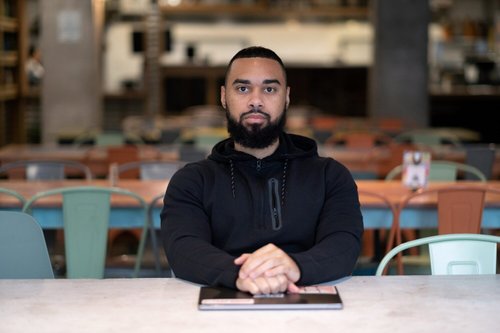
Be real, get ahead: The power of authenticity in your career
Pabel Martinez shares insights on how to allow yourself to be yourself, find your voice, and deconstruct stereotypes at work.
25. 4. 2024
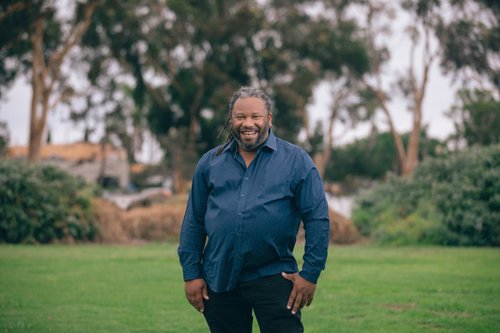
How play can make you happy, creative and productive at work
Work-life balance usually means separating work and play, but it might be a better marriage than you think...
07. 11. 2023
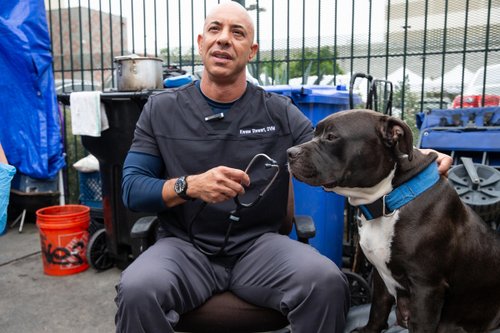
Project Street Vet: Caring for the unseen paws of Skid Row
Providing vet-to-pet care in some of California's largest homeless communities, Dr. Kwane Stewart shares the ups and downs of his remarkable work.
29. 8. 2023

Girls learn how to have fun – and funds – by investing
A Danish trio is fighting gender inequality... on the stock market. We had a chat with one of the co-authors of the book Girls Just wanna Have Funds
30. 1. 2023

A conversation with Ted Conover, master of immersive journalism
We spoke to America’s reigning master of immersion reporting about political polarization, social media and how to hack it as a writer today
26. 1. 2023
Novinky, ktoré to vyriešia
Chcete držať krok s najnovšími článkami? Dvakrát týždenne môžete do svojej poštovej schránky dostávať zaujímavé príbehy, ponuky na práce a ďalšie tipy.

Hľadáte svoju ďalšiu pracovnú príležitosť?
Viac ako 200 000 kandidátov našlo prácu s Welcome to the Jungle
Preskúmať pracovné miesta

